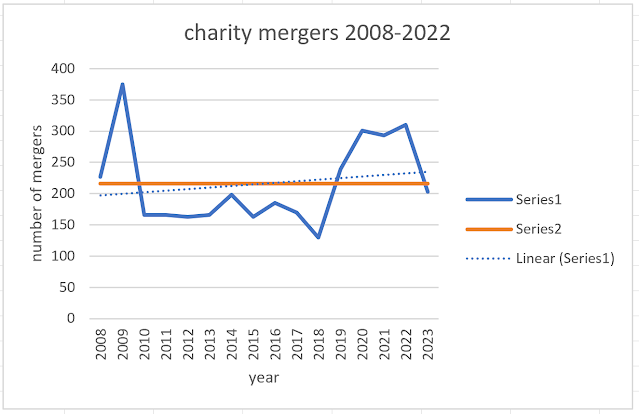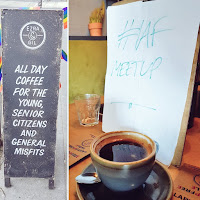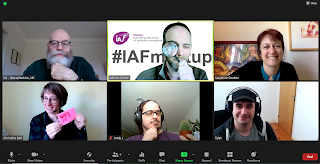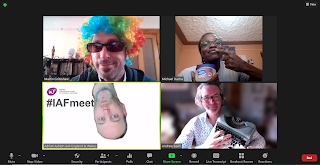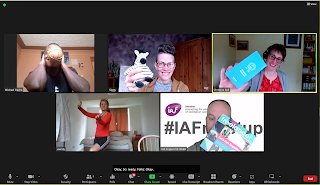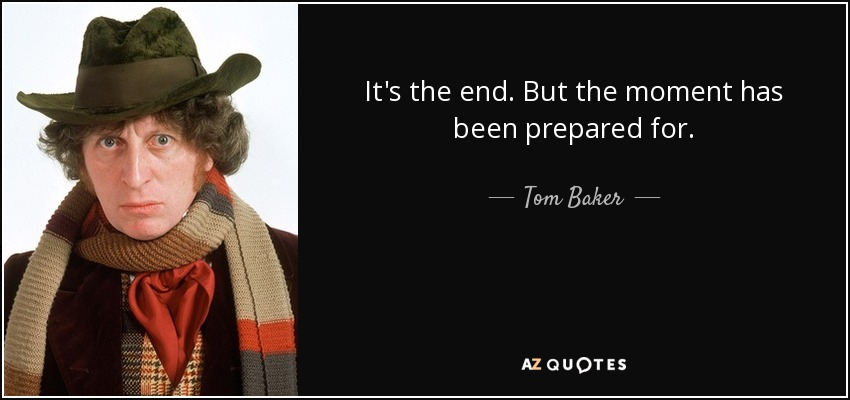This post was written at the start of carers week 2023 - and is based on conversations amongst freelancers and owners of small businesses at events hosted by
Freelance Heroes and
Atomicon23.
It is not intended to offer definitive, medical, or legal counsel or guidance - but reflect emergent themes and issues that may be of encouragement and support to others; and possibly also highlight future wider policy development needs.
My name is Adrian, and I'm an unpaid carer for my adult step-child, as well as being a freelance business consultant.
In my head that makes me sound like I'm at an alcoholics anonymous meeting, but maybe it's not too dissimilar: people often struggle to feel comfortable in knowing how to best behave in the company of an alcoholic, and similarly with someone who's an unpaid carer (unless you're living it day to day, it can be hard to fully appreciate the realities of the identities and roles that you hold and manage as such).
But unlike my counterparts who are in salaried, direct employment, there are no legal recognitions for me as an unpaid carer in my (paid) work; and no data on how many other people like me there are - in preparing to host the roundtable discussions that this blog is based on, the Office of National Statistics, the Labour Force Survey, and ipse all revealed that there is no data about how many people who are self-employed/business owners are also unpaid carers.
A rough-cut extrapolation of data I could find about unpaid carers in general, and different models of employment, might seem to suggest that roughly 10% of the self-employed are also unpaid carers (that's about half a million people!), and of those, less than 1 in 10 have access to any support for themselves in these roles - and as freelancers, we're more likely to be in poverty if we're an unpaid carer than if we were salaried.
Starting to initially explore these issues with groups of fellow freelancers, small business owners, and sole traders who are also unpaid carers like me, saw the following emerge and being shared:
Busting accepted wisdom about origin stories
It can be easy to assume that people who are unpaid carers chose to become self-employed to offer themselves more flexibility around their unpaid caring role - but what came out of the discussions, is that this wasn't always the case.
Often, people took on the mantle of an unpaid carer role after having been self-employed for many years, and as a result subsequently found they needed support with redeveloping how they worked in order to be able to maintain their earnings to continue to support themselves and their families (but this isn't offered/available to them).
Seeing it coming
In one of the roundtables, a person shared how they had joined the conversation to learn from others' experiences because they had recently recognised that in future years, they will need to be more actively involved in supporting the care of their parents.
They were trying to be pro-active in managing the impact that becoming an unpaid carer would have on themselves, their family, and their business by better understanding the likely realities they will experience when they do. As a result, they hoped to be able to best plan to mitigate the impacts of this - and this roundtable had offered them the first opportunity to be able to do this in any meaningful way.
The need for a better handbook
Through sharing their experiences, people agreed that there was much about being an unpaid carer that they wish they had know sooner, but which no-one had told them (for example - the benefits of being able to be formally recognised and registered as a carer for a family member).
While there is knowledge out there, it can be hard to navigate and identify ("you don't know what you need to know, so don't know what questions to ask"). People are frequently relying on friends and family for informal (emotional) support for themselves, but as encouraging as these people might be, they rarely know of practical and pre-existing systems and processes that unpaid carers can apply to, but often aren't told about.
The limiting of business growth and potential
A common recurring practicality about being an unpaid carer that was shared, was how it meant that the businesses we had created all had to be limited in terms of their potential to grow in order to honour our caring responsibilities - and with that, our ability to innovate and develop new services and offers in the marketplace.
Whilst this is obviously a personal decision that all unpaid carers find ways to eventually reconcile, this speaks to the impact of the need for unpaid care to our wider economy.
The cost to our personal futures
As well as the financial impact that being an unpaid carer creates through loss of earnings (which is not mitigated through carers allowance were it is able to be awarded), there was also concern about how little support there is for us to be able to access for ourselves in this role - one person shared how becoming an unpaid carer had led to them being diagnosed with mental ill health, and being subsequently needing to be prescribed anti-depressants.
The emotional stresses that unpaid care places on us therefore also affects the future we might have otherwise experienced for ourselves, through it is affecting our well-being today.
The need for supportive clients
A tension was briefly explored around our relationships with our clients as small business owners - specifically, how far we're open with them about our identify and priorities as an unpaid carer, and how this tension can be managed in how we work with them. As freelancers, our clients come to us to solve problems quickly, responsively, and without adding to their own existing complexity, so revealing we may need to drop them at no notice because of a caring need, may understandably 'spook' them a little...
People shared how their clients were generally sympathetic and flexible in work agreed - but not every business that commissions us will be able to be such; which loops us back to the limiting on our business' potential that being an unpaid carer can entail.
Taking back control
Being self-employed often means we face a barrage of external stressors because of the ever-changing circumstances we all experience that are instigated by others (clients, government, etc) - and being an unpaid carer only exacerbates these through the additional unknowns of how the child, parent, or sibling we care for may respond on any given day to any given event, how reviews of their care or support plans may trigger new complications, and so on.
The roundtables therefore also tried to look at how we're approaching supporting ourselves, and in doing so, gain a little more control over our own lives:
- counselling support from the FSB was mentioned as one of their member benefits, that one person had made use of;
- one person shared how they had chosen to deliberately limit the earnings of their business to reduce the stress on having to work with multiple clients on different deadlines which would otherwise be constantly competing with the needs of their child, that they are the unpaid carer for;
- taking out a private health care plan to be able to arrange GP appointments, any procedures, etc at times that suited them, rather than playing the lottery of NHS scheduling and waiting lists, was shared by someone else;
- registering as a limited company, rather than remaining a sole trader, was shared as a way one person had approached reducing the stress they were feeling about the risks in their business alongside being an unpaid carer.
But these roundtables weren't all 'doom and gloom' as might start to be otherwise interpreted based on the above:
- there was also news about 'Cornerstone', a new emergent peer community for freelancers who are also unpaid carers being created;
- gratitude was expressed for people having the opportunity to (briefly) share time with their peers, and be edified from hearing that what they were experiencing wasn't unique to them;
- and people also valued how being an unpaid carer creates space for us to reflect on our own personal identities as human beings.
If you're an unpaid carer you may find the below sites of help (as well as links in the various parts of the blog above):
https://www.citizensadvice.org.uk/family/looking-after-people/carers-help-and-support/
https://www.gov.uk/browse/benefits/help-for-carers
https://www.carersuk.org/help-and-advice/
I'm also happy to offer to speak with any fellow small business owners, sole traders, and freelancers to swap stories that may be of mutual benefit - as well as with any sector or national bodies to further explore potential policy and initiatives that may address some of the themes and issues these roundtables identified:
- the impact to the economy of 500,000 businesses not being able to achieve their potential;
- the need for business disruption to be avoided when small business owners transition into unpaid care roles;
- how freelancers can be better supported to access support/avoid poverty when becoming unpaid carers.
UPDATE 3rd AUG 2023:
Published after these round tables, and blog was written up, JRF have undertaken some further research into this, and found that as unpaid carers who are also freelance/self-employed/small business owners, we pay a #CaringPenalty (suffer lost earnings) of nearly £10,000 every year!
- any wonder so many of us are finding ourselves being pushed into poverty?



